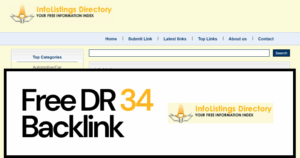In the world of digital marketing, understanding the impact of SEO on your content is essential for driving online success. From improving organic traffic to enhancing user engagement, SEO plays a crucial role in shaping the performance of your content. But how do you measure this impact and what tools and metrics are available to help you do so effectively? In this blog, we will delve into the various aspects of measuring SEO impact on your content, exploring the key metrics, tools, and strategies that can be utilized to gain valuable insights. Whether you’re a seasoned marketer or just starting out, this guide will equip you with the knowledge and skills needed to optimize your content for better SEO impact and leverage data to inform your future content strategy. So, buckle up and get ready to unlock the power of SEO measurement for your content!
Understanding SEO Impact on Content
SEO impact refers to the effect that search engine optimization has on the visibility and ranking of a website’s content in search engine results pages (SERPs). It involves analyzing how well a website is optimized for search engines and the resulting impact on organic traffic, user engagement, and conversions.
Measuring SEO impact is crucial for understanding the effectiveness of your content strategy and the success of your SEO efforts. It helps in identifying which SEO tactics are working and which ones need improvement, allowing you to make data-driven decisions to optimize your content for better performance in search engine results.
Factors such as keyword rankings, organic traffic, click-through rates, bounce rates, and conversion rates are all important metrics for assessing SEO impact on content. By measuring these factors, you can gain valuable insights into the performance of your content in search engine results and make informed decisions to improve your overall SEO strategy.
Tools for Measuring SEO Impact
One of the most common tools for measuring the impact of SEO on your content is Google Analytics. This platform provides valuable insights into the performance of your website, including organic search traffic and keyword rankings. By analyzing the data provided by Google Analytics, you can assess the effectiveness of your SEO strategies and make informed decisions about optimizing your content for search engines.
In addition to Google Analytics, there are numerous SEO analysis platforms available that can help you measure the impact of your SEO efforts. These platforms offer a wide range of features, such as keyword research, backlink analysis, and competitor tracking, which can provide valuable data for assessing the impact of your SEO on your content. By using these platforms, you can gain a comprehensive understanding of how your content is performing in organic search results and identify areas for improvement.
Furthermore, content performance tracking tools can also be valuable for measuring the impact of SEO on your content. These tools provide insights into the engagement and conversion metrics of your content, allowing you to determine how well your content is resonating with your target audience. By analyzing these metrics in relation to your SEO efforts, you can gain a clearer picture of the impact of your SEO strategies on the success of your content.
Key Metrics to Measure SEO Impact
One of the key metrics to measure the impact of SEO on your content is organic traffic. By analyzing the amount of traffic coming to your website from search engines, you can determine the effectiveness of your SEO efforts. An increase in organic traffic indicates that your content is ranking well and attracting more visitors, while a decrease may signal that your SEO strategy needs adjustment.
Another important metric to consider is keyword rankings. Monitoring the positions of your targeted keywords in search engine results pages (SERPs) can help you assess the impact of your SEO efforts. Improvements in keyword rankings indicate that your content is becoming more visible to potential visitors, while a decline may indicate a need for optimization.
Additionally, assessing the quality and quantity of backlinks to your content is crucial for measuring SEO impact. Backlinks from reputable and relevant websites can significantly boost your content’s visibility and authority in the eyes of search engines. By tracking the number and quality of backlinks pointing to your content, you can gauge the impact of your SEO strategy on building a strong backlink profile.
Analyzing Content Performance
When measuring the impact of SEO on your content, it’s crucial to analyze the performance of your content. This involves looking at various content engagement metrics such as page views, time spent on page, and bounce rates. By understanding how users are interacting with your content, you can gain insight into the effectiveness of your SEO efforts.
Another important aspect to consider when analyzing content performance is conversion rates. Are users taking the desired actions after engaging with your content? Whether it’s making a purchase, signing up for a newsletter, or filling out a form, tracking conversion rates can help you assess the impact of SEO on your content.
In addition to content engagement metrics and conversion rates, user behavior analysis plays a crucial role in measuring the impact of SEO. By examining how users navigate through your site, where they are dropping off, and what actions they are taking, you can identify areas for improvement and optimize your content for better SEO performance.
Optimizing Content for Improved SEO Impact
Keyword optimization is a crucial aspect of improving SEO impact on your content. By conducting thorough keyword research and strategically placing relevant keywords throughout your content, you can enhance its visibility and ranking on search engine results pages. This involves identifying high-value keywords that are relevant to your content and target audience, and integrating them naturally into your writing to attract more organic traffic.
Enhancing the quality of your content is another key factor in optimizing it for improved SEO impact. Search engines prioritize content that is valuable, informative, and engaging for users. By creating high-quality, original content that meets the needs and interests of your audience, you can increase its chances of ranking higher in search results and gaining more visibility. This may involve updating existing content, adding multimedia elements, and ensuring that it provides comprehensive and valuable information to users.
mobile optimization is essential for improving SEO impact, as an increasing number of users access content on mobile devices. Ensuring that your content is responsive and accessible on various mobile devices can significantly impact its visibility and ranking on search engine results pages. This involves optimizing the layout, design, and functionality of your content to provide a seamless and user-friendly experience for mobile users, ultimately contributing to improved SEO impact.
Creating an SEO Impact Measurement Strategy
When creating an SEO impact measurement strategy, it is essential to start by setting clear goals and objectives. This involves determining what you want to achieve through your SEO efforts, whether it’s increasing organic traffic, improving search engine rankings, or driving more conversions. By clearly defining your goals, you can better align your measurement strategy with your overall business objectives.
Establishing key performance indicators (KPIs) is another crucial step in measuring the impact of SEO on your content. KPIs provide measurable metrics that allow you to track the success of your SEO efforts. These can include metrics such as organic traffic, keyword rankings, click-through rates, and conversions. By establishing KPIs, you can more accurately assess the effectiveness of your SEO strategy and make informed decisions about where to focus your efforts.
Continuous monitoring and adjustment are also essential components of an effective SEO impact measurement strategy. By regularly monitoring your KPIs and analyzing the data, you can identify trends, opportunities, and areas for improvement. This allows you to make necessary adjustments to your SEO strategy to maximize its impact on your content. Whether it’s updating keyword targeting, optimizing meta tags, or improving site speed, ongoing monitoring and adjustment are critical for achieving long-term SEO success.
Measuring SEO Impact on Different Content Types
When measuring the impact of SEO on different content types, it’s important to consider the specific goals and objectives of each type. For blog posts, the impact can be measured by tracking the increase in organic traffic, the number of backlinks, and the overall engagement metrics such as time on page and bounce rate. product pages, on the other hand, may require a focus on conversion rate, click-through rate, and keyword rankings to assess the SEO impact. For videos and multimedia content, metrics such as video views, watch time, and social shares can provide insights into the effectiveness of SEO strategies.
In addition to these specific metrics, it’s essential to analyze the overall impact of SEO on the visibility and discoverability of the content across different platforms and search engines. This can be done by monitoring the search engine rankings, the presence of rich snippets, and the potential for featured snippets for the content. By understanding the unique impact of SEO on each content type, marketers can tailor their strategies to maximize the visibility and reach of their content.
Furthermore, conducting A/B testing and experiments can also help in measuring the impact of SEO on different content types. By comparing the performance of optimized content against non-optimized content, marketers can gain valuable insights into the direct impact of SEO on the visibility, engagement, and conversion metrics for each content type.
Leveraging SEO Impact Data for Content Optimization
One of the most effective ways to optimize content is by leveraging SEO impact data. By analyzing the impact of SEO on your content, you can make iterative improvements to ensure that your content is reaching its maximum potential. This involves closely monitoring the performance of your content in relation to SEO keywords and search engine rankings, and using this data to inform ongoing content optimization strategies.
A key strategy for leveraging SEO impact data is through A/B testing. By testing different versions of your content with varying SEO strategies, you can identify which approaches yield the best results. This allows you to make data-driven decisions about how to optimize your content for maximum impact, based on real-world performance data.
Furthermore, leveraging SEO impact data can also enable personalized content optimization. By understanding the specific keywords and SEO strategies that drive traffic to your content, you can tailor your content to better meet the needs and interests of your target audience. This can lead to higher engagement, increased conversions, and ultimately, a more successful content strategy.
Reporting and Communicating SEO Impact Results
Creating comprehensive reports is essential for effectively communicating the impact of SEO on content. These reports should include key metrics such as organic traffic, keyword rankings, and conversion rates. By presenting this data in a clear and visually appealing format, stakeholders can easily understand the influence of SEO efforts on content performance.
When presenting SEO impact results to stakeholders, it is crucial to focus on the most relevant and impactful data points. This may involve tailoring the presentation to different audiences, such as executives, marketing teams, or content creators. By highlighting the specific outcomes of SEO initiatives, stakeholders can better grasp the value and significance of these efforts.
Using the data gathered to inform future content strategy is a critical aspect of measuring SEO impact. By analyzing the results of SEO efforts, content creators and strategists can identify opportunities for improvement and optimization. This data-driven approach ensures that future content is aligned with SEO best practices and tailored to meet the needs and preferences of target audiences.
Are you tired of spending hours on manual content creation and SEO optimization? Say hello to Abun – the ultimate solution for content creators and marketers seeking to automate and optimize their web content for SEO. With Abun, you can say goodbye to tedious tasks and hello to high-quality, SEO-optimized content that drives organic traffic to your website. Our platform streamlines your workflow, saving you time and effort while ensuring that your content ranks higher on search engines. Don’t miss out on the opportunity to revolutionize your content creation process – sign up for early access to Abun now.
Frequently Asked Questions
1. What is SEO?
SEO stands for Search Engine Optimization. It is the practice of optimizing your website and its content to improve its visibility and ranking on search engine results pages.
2. Why is it important to measure the impact of SEO on your content?
Measuring the impact of SEO on your content allows you to understand how well your SEO efforts are performing and whether they are driving the desired results. It helps you identify areas for improvement and make data-driven decisions to optimize your content further.
3. How can I measure the impact of SEO on my content?
There are several ways to measure the impact of SEO on your content. You can use tools like Google Analytics to track organic search traffic, keyword rankings, and conversion rates. You can also analyze user engagement metrics such as bounce rate, time on page, and click-through rates to assess the effectiveness of your SEO strategies.
4. What are some key metrics to track when measuring the impact of SEO on content?
Some key metrics to track when measuring the impact of SEO on content include organic search traffic, keyword rankings, conversion rates, bounce rate, time on page, and click-through rates. These metrics provide insights into the visibility, relevance, and user engagement of your content.
5. How long does it take to see the impact of SEO on content?
The time it takes to see the impact of SEO on content can vary depending on various factors such as the competitiveness of your industry, the quality of your content, and the effectiveness of your SEO strategies. Generally, it can take several weeks to months to see significant improvements in organic search rankings and traffic.
TL;DR: Measuring the impact of SEO on your content is crucial for understanding its performance and making necessary improvements. By utilizing tools like Google Analytics and SEO analysis platforms, you can track key metrics such as organic traffic, keyword rankings, and backlink quality. It’s important to set clear goals, continuously monitor performance, and optimize content based on SEO insights. Leveraging SEO impact data can inform future content strategy and lead to more effective communication with stakeholders.



